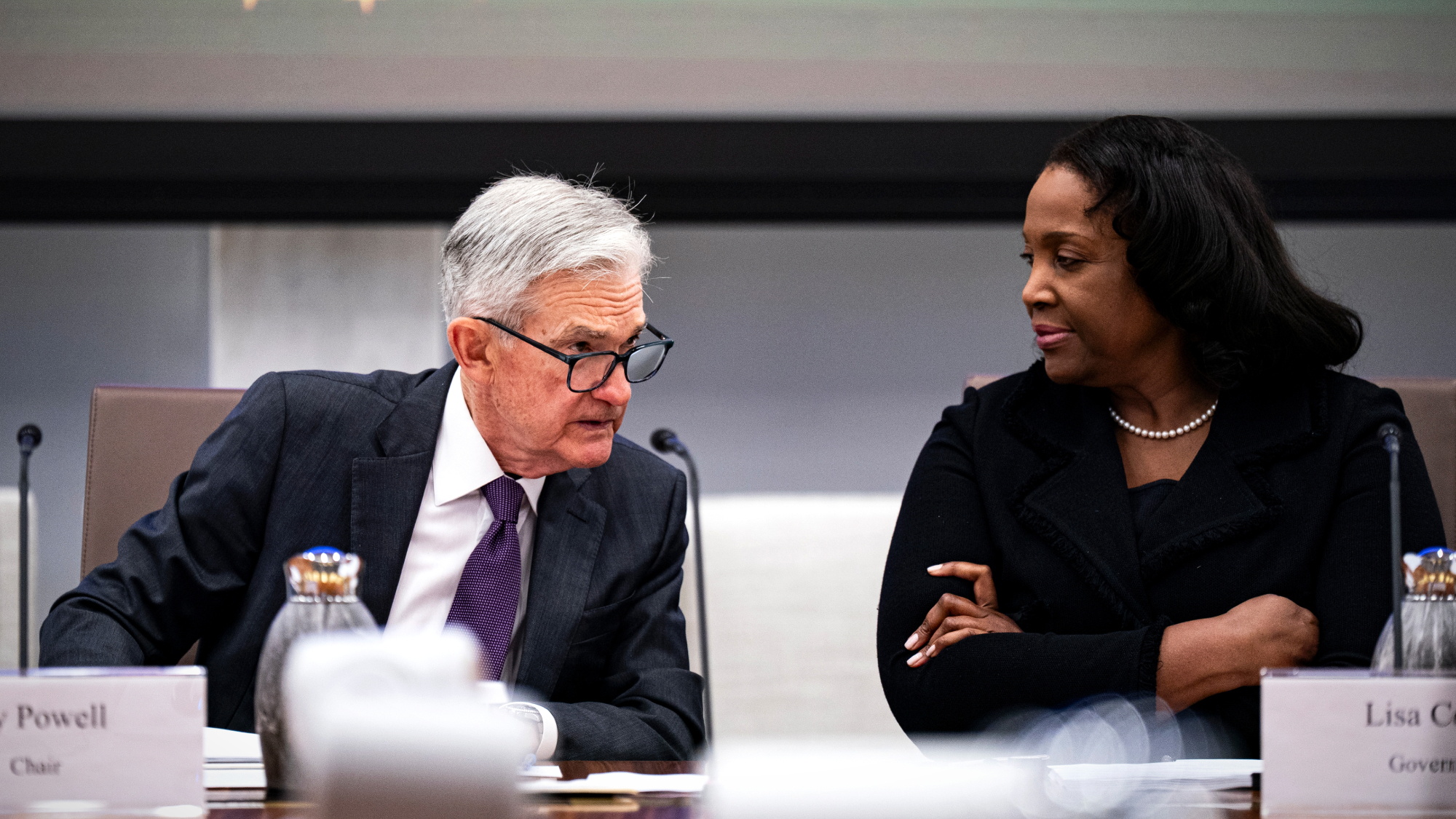Trump says he's firing Federal Reserve Governor Lisa Cook
The move is likely part of Trump's push to get the central bank to cut interest rates


A free daily email with the biggest news stories of the day – and the best features from TheWeek.com
You are now subscribed
Your newsletter sign-up was successful
What happened
President Donald Trump Monday said he had fired Federal Reserve Governor Lisa Cook, justifying the unprecedented move by citing unproven allegations of mortgage fraud. Cook, an economist whose term expires in 2038, said Trump had "no authority" to fire her "'for cause' when no cause exists under the law" and "I will not resign." Trump's maneuver was widely seen as an escalation of his push to pressure the historically independent central bank to sharply cut interest rates.
Who said what
Trump's "legally dubious" move to fire Cook, the first Black woman on the Fed's board of governors, "fit an emerging pattern of political retribution" against his "perceived enemies" using mortgage fraud allegations raised by Bill Pulte, the head of the Federal Housing Finance Agency, The New York Times said. Pulte has "trotted out similar allegations" against Sen. Adam Schiff (D-Calif.) and New York Attorney General Letitia James. No charges have been filed.
Trump is "using the criminal justice system to remove people from office over policy disagreements," Michael Strain, from the conservative American Enterprise Institute, told The Washington Post. "That is extremely dangerous and is, in the case of the Fed, a threat to long-term prosperity."
"By design, the Fed is unusually insulated from the give-and-take of politics," The Wall Street Journal said, and none of its governors "has ever been targeted for removal by the president." But "Richard Nixon and Lyndon Johnson put heavy pressure on the Fed" to "keep interest rates low," The Associated Press said, and that has "widely been blamed for touching off rampant inflation in the late 1960s and '70s." Trump's move could similarly "backfire" if investors "demand higher interest rates" to "compensate for the higher risk of inflation" from a politically compromised Fed, the Post said.
What next?
It is "unclear how the matter might play out from here," Reuters said, "with Trump saying the firing was 'effective immediately,' and the Fed set to hold a policy meeting on Sept. 16-17." Legal experts were skeptical that Trump's maneuver was legally valid, the AP said, and it is "likely to touch off an extensive legal battle that will probably go to the Supreme Court."
The Week
Escape your echo chamber. Get the facts behind the news, plus analysis from multiple perspectives.

Sign up for The Week's Free Newsletters
From our morning news briefing to a weekly Good News Newsletter, get the best of The Week delivered directly to your inbox.
From our morning news briefing to a weekly Good News Newsletter, get the best of The Week delivered directly to your inbox.
A free daily email with the biggest news stories of the day – and the best features from TheWeek.com
Peter has worked as a news and culture writer and editor at The Week since the site's launch in 2008. He covers politics, world affairs, religion and cultural currents. His journalism career began as a copy editor at a financial newswire and has included editorial positions at The New York Times Magazine, Facts on File, and Oregon State University.
-
 The ‘ravenous’ demand for Cornish minerals
The ‘ravenous’ demand for Cornish mineralsUnder the Radar Growing need for critical minerals to power tech has intensified ‘appetite’ for lithium, which could be a ‘huge boon’ for local economy
-
 Why are election experts taking Trump’s midterm threats seriously?
Why are election experts taking Trump’s midterm threats seriously?IN THE SPOTLIGHT As the president muses about polling place deployments and a centralized electoral system aimed at one-party control, lawmakers are taking this administration at its word
-
 ‘Restaurateurs have become millionaires’
‘Restaurateurs have become millionaires’Instant Opinion Opinion, comment and editorials of the day
-
 Why are election experts taking Trump’s midterm threats seriously?
Why are election experts taking Trump’s midterm threats seriously?IN THE SPOTLIGHT As the president muses about polling place deployments and a centralized electoral system aimed at one-party control, lawmakers are taking this administration at its word
-
 ‘Restaurateurs have become millionaires’
‘Restaurateurs have become millionaires’Instant Opinion Opinion, comment and editorials of the day
-
 NIH director Bhattacharya tapped as acting CDC head
NIH director Bhattacharya tapped as acting CDC headSpeed Read Jay Bhattacharya, a critic of the CDC’s Covid-19 response, will now lead the Centers for Disease Control and Prevention
-
 Should the EU and UK join Trump’s board of peace?
Should the EU and UK join Trump’s board of peace?Today's Big Question After rushing to praise the initiative European leaders are now alarmed
-
 Witkoff and Kushner tackle Ukraine, Iran in Geneva
Witkoff and Kushner tackle Ukraine, Iran in GenevaSpeed Read Steve Witkoff and Jared Kushner held negotiations aimed at securing a nuclear deal with Iran and an end to Russia’s war in Ukraine
-
 Pentagon spokesperson forced out as DHS’s resigns
Pentagon spokesperson forced out as DHS’s resignsSpeed Read Senior military adviser Col. David Butler was fired by Pete Hegseth and Homeland Security spokesperson Tricia McLaughlin is resigning
-
 Judge orders Washington slavery exhibit restored
Judge orders Washington slavery exhibit restoredSpeed Read The Trump administration took down displays about slavery at the President’s House Site in Philadelphia
-
 Kurt Olsen: Trump’s ‘Stop the Steal’ lawyer playing a major White House role
Kurt Olsen: Trump’s ‘Stop the Steal’ lawyer playing a major White House roleIn the Spotlight Olsen reportedly has access to significant US intelligence
